A common goal among cat owners is keeping the litter box smell to a minimum. This can pose a bit of a challenge, especially if you don’t have all your ducks in a row. The smell of your litter box can depend on several factors. Here we are going to talk about all the different ways you can keep your litter boxes from smelling.
The 12 Ways to Keep a Litter Box from Smelling
1. Get the Right Litter
Cat litter comes in a wide range of types and textures, as well as some that have certain scents. Not only will the right litter keep your cat stress-free and reduce any accidents outside the box, but it will also be easy for you to clean, keep odors under control, and suit your personal preferences. Finding out which litter works best for you and your cat may result in some trial and error.
There are plenty of litters on the market that are made for odor control, but not all come equal. Some cats will be deterred by strong-smelling litter, and others have a litter scent that is so strong it overpowers the whole area.
Figure out which kind of litter you want to use and give some a try. One that is highly regarded among cat owners for being the best at odor control is Ever Clean Extra Strength Unscented Cat Litter Multi-Cat.
2. Clean the Litter Box(es) Daily
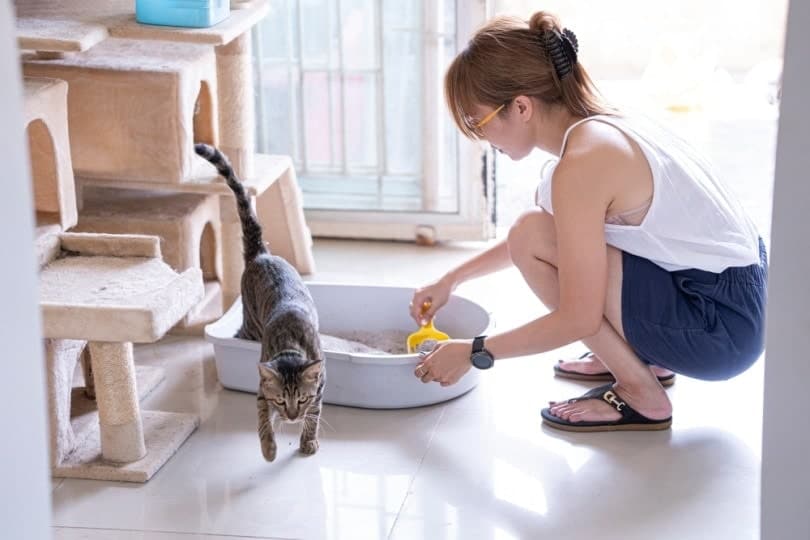
You will undoubtedly need to keep up with your daily cleaning of the litter box to keep it from smelling. The more waste that piles up, the worse off the smell is going to be. Make sure to clean each litter box in your household on a daily basis.
If you want to take it a step further, carve out some extra time to scoop out the litter two or three times a day. Regular litter box cleaning isn’t just convenient for you and the smell of your home, but your cat will be thankful, too.
3. Make Sure You Have Enough Litter Boxes
You need to ensure you have the correct amount of litter boxes in your home to keep them from being overloaded. It is recommended that you have one litter box per cat, plus an additional one. That means households with one cat should always have two litter boxes, a home with two cats should have three, and so on.
Cats are clean animals that aren’t going to prefer having their litter box filled with waste. Having the appropriate number of boxes available is essential for keeping those litter odors under control.
4. Use a Litter Box with an Odor Filter
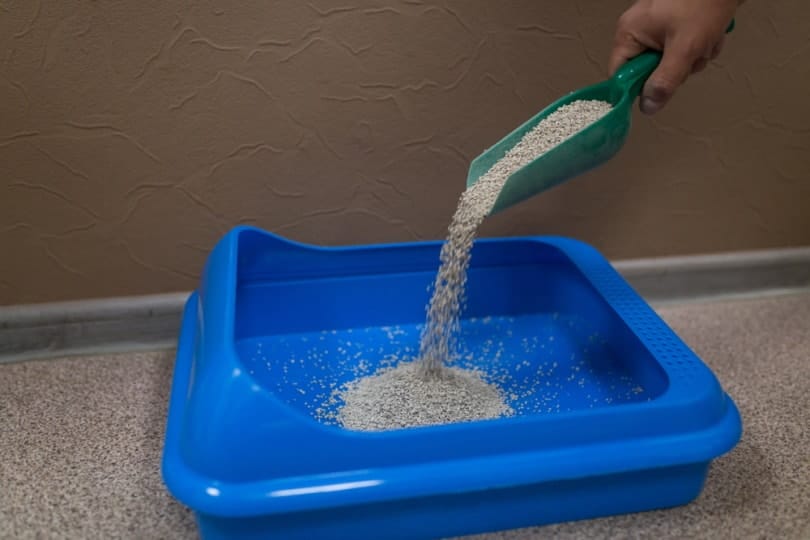
You may have noticed that some litter boxes come with a filter. These filters are in place to help absorb odors before they leave the box and are very common among covered litter box varieties.
You will also need to remember to replace these filters, as they will decrease in efficiency as time goes on. There are plenty of places to buy filter replacements, like Chewy and Amazon, when the time comes to swap yours out. Just make sure it fits your box properly.
5. Try a Litter Box Deodorizer
Chances are you have seen carpet deodorizers, but did you know they make them for litter boxes too? That’s right, you can either get online or head to your nearest store to pick up a box or litter box deodorizer to help keep that litter smell at bay.
These deodorizers contain baking soda, among other ingredients, and are very cost-friendly. They can be used in any type of litter and can even help prevent urine clumps from sticking. Most of these products are moisture-activated to help refresh the scent each time your cat has to go to the bathroom.
If you're dealing with stubborn smells in your litter box or elsewhere in your house, a good cat litter deodorizer can work wonders.
We recommend Hepper's Advanced Bio-Enzyme Cat Litter Deodorizer, an all-natural litter additive that fights odors using bio-enzymes. This effective deodorizer is fragrance-free and works on all types of cat litter. It's also effective anywhere you have lingering odors, including diaper pails, garbage cans, and kennels! At Catster, we’ve admired Hepper for many years and decided to take a controlling ownership interest so that we could benefit from the outstanding designs of this cool cat company!
6. Add Baking Soda
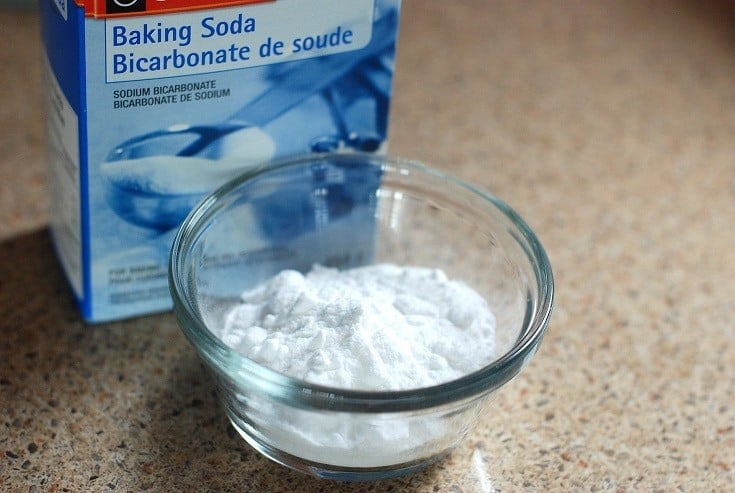
Baking soda is without a doubt the least expensive product you can buy to help contain those nasty litter box odors. It is the primary ingredient in most litter box deodorizers because it is excellent at neutralizing odors and keeping things smelling fresh.
If you don’t have any deodorizers on hand, you can just sprinkle some plain old baking soda in the box, and it will help. The good news is that baking soda won’t repel the cats that aren’t too keen on heavy scents.
7. Wash the Entire Litter Box
You will need to regularly empty all the litter and wash out the box to keep the smells from latching on and never letting go. Cat urine is strong and if it saturates the lining of the litter box, it will get to a point where the smell is set in. To prevent this, you should wash it out thoroughly every 1 to 3 weeks, depending on your household.
It’s best to do this when you are ready to put in some fresh litter. Just empty what’s in there and then thoroughly scrub and wash the box with soapy water. You don’t need to buy anything special to do this; you can grab some dish detergent and some baking soda to get the job done. You can also finish up by using an enzymatic cleaner to penetrate those nasty smells.
8. Keep the Area Well-Ventilated
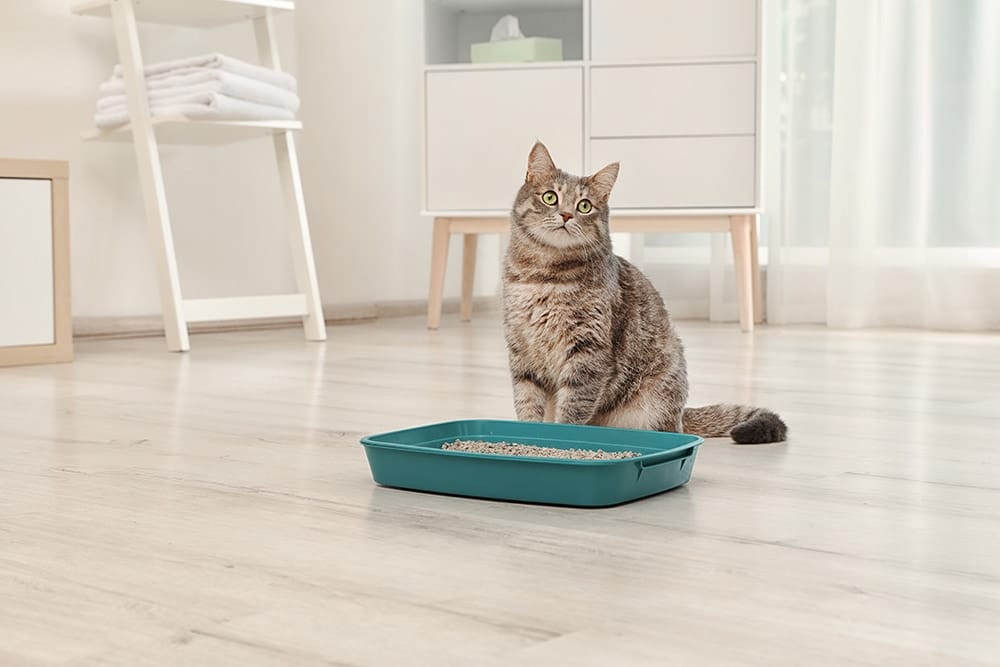
While it can be tempting to place your cat’s litter box in a small, confined area away from everything, this isn’t always a good idea. Smaller, confined spaces like closets or small bathrooms don’t have good ventilation, and you need ventilation to help control the smell.
The more air that is circulating throughout the litter box area, the less smell you will notice. This will also prevent you from wanting to avoid the dreaded litter box area because the smell became too overpowering.
9. Use an Air Purifier
A beneficial device to have in your home is an air purifier. Air purifiers remove contaminants from the air and improve air quality. A lot of people use these to help eliminate irritating pet dander, but they will also do a great job keeping the litter scent under control.
You will want to look for an air purifier that uses a HEPA filter. HEPA stands for high-efficiency particulate air and these filters are great for odors and allergens. To be certified as a HEPA filter, it must be able to capture 99.97 percent of all particles 0.3 microns or larger.
10. Clean Up Messes Quickly
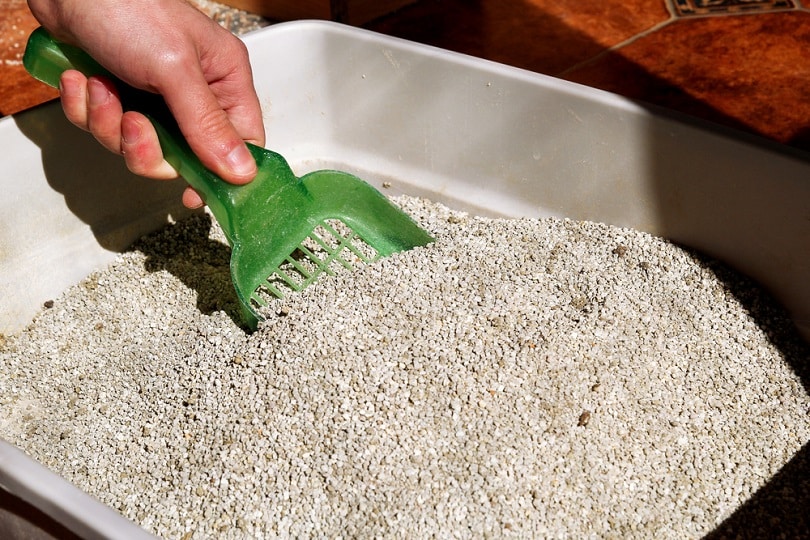
Another way to keep your litter box from smelling is to clean up any messes as quickly and as thoroughly as possible. If you notice your cat has gone to the bathroom and you have the time, go pick it up and dispose of it accordingly. The quicker you stay on top of this, the better your house will smell.
Sometimes litter gets tracked outside the box, so you will want to vacuum up any excess litter, too. If for any reason you get a mess outside the litter box, make sure to use an enzymatic cleaner to fight those odors in carpets or on other surfaces.
The Hepper Advanced Bio-Enzyme Pet Stain & Odor Eliminator Spray is our favorite enzyme cleaner out there. It permanently removes even the very worst kitty stains and smells, leaving your home fresh and clean! Click here to learn more about this amazing product and get yourself a bottle. At Catster, we’ve admired Hepper for many years, and decided to take a controlling ownership interest so that we could benefit from the outstanding products of this cool cat company!
11. Replace Litter Boxes Regularly
Litter boxes will go through their wear and tear. Once you’ve used it for a while, the ammonia from the cat urine will penetrate the material to the point that you don’t feel you’ll ever get that stench out.
Most people replace their litter boxes every one to two years. They have the potential to last much longer if you keep up on regular litter box cleaning and give it a thorough wash at least once per month.
12. Try a Self-Cleaning Litter Box
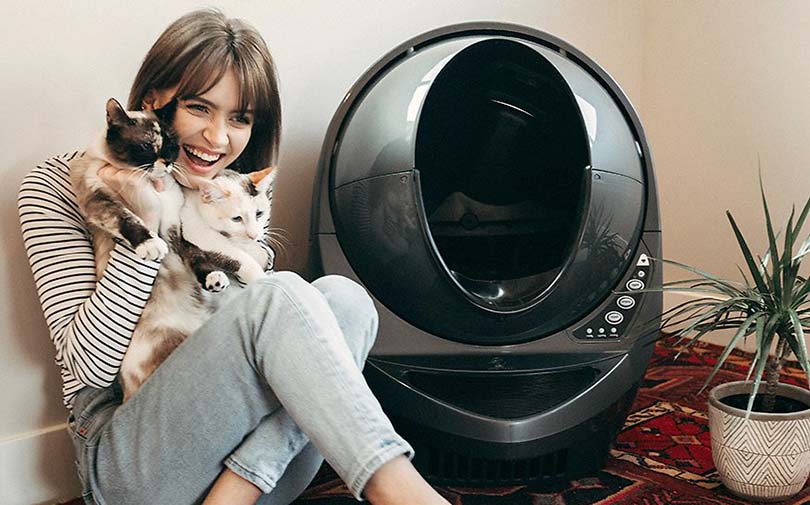
While automatic, self-cleaning litter boxes come at a much higher price tag than your average litter box, as they are designed for convenience. There are automatic cat litter boxes available with disposable trays, so you avoid scooping, cleaning, or even encountering your cat’s waste.
Other types of automatic cat litter boxes use sensors and will run their sifters through the pan as soon as the cat leaves the box. All you need to do is empty the tray. Regardless of which type you prefer, they are designed to help control litter box odors within the home.
 Understanding How to Manage Cat Litter
Understanding How to Manage Cat Litter
All cat owners should be aware of how to properly handle the maintenance of cat litter and the litter box. Here are some answers to some of the most common questions asked about all things related to cats and their bathroom habits.
Why Does Cat Urine Smell So Strong?
We all know that cat urine has a very distinct, strong odor. This is because the bacterium in the urine decomposes and begins emitting an ammonia-like odor. Further into the decomposition, the urine begins emitting compounds that resemble the smell of skunk spray. Things like food, age, and whether the cat is male or female can all affect the strength of the urine’s odor.
Can Litter Make You Sick?
The pungent smell of cat urine can result in headaches or respiratory issues. This is usually due to massive amounts of urine not being cleaned, so this isn’t as much of a worry for cat owners that keep up with litter box cleaning.
You also need to be aware of the different parasites and diseases that can come from cat waste, including giardia, roundworm, toxoplasmosis, and campylobacteriosis. To prevent any parasites and bacteria, make sure you keep up with regular veterinary health exams and preventative care.
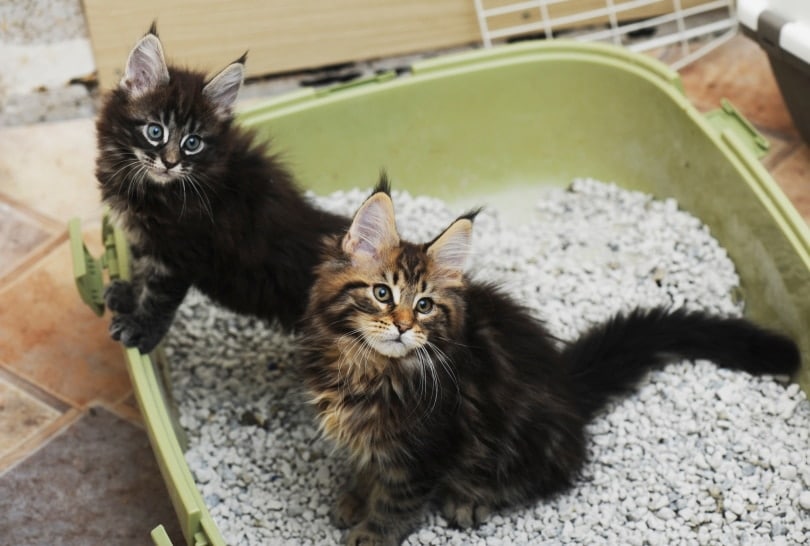
Should I Flush Cat Poop Down the Toilet?
Cat litter should not be flushed down the toilet, as the litter can clog pipes and harm the septic system. You also run the risk of flushing feces that contains Toxoplasma gondii down into the water supply, which could increase the risk of humans becoming infected.
What’s the Best Way to Dispose of Cat Litter?
The best way to dispose of cat litter or any pet waste is to throw it in the trash. If not properly disposed of, cat waste is potentially hazardous to humans and the environment. Even the most environmentally friendly organizations recommend this. One way to make the process more sustainable is by using biodegradable litter.
Conclusion
No one wants to be overwhelmed with the smell of cat litter throughout their home. This is a common concern among many pet parents, especially those with multiple cats. Thankfully, there are plenty of tips and tricks you can try to help keep your litter box from smelling.
Featured Image Credit: catinsyrup, Shutterstock
Contents
- The 12 Ways to Keep a Litter Box from Smelling
- 1. Get the Right Litter
- 2. Clean the Litter Box(es) Daily
- 3. Make Sure You Have Enough Litter Boxes
- 4. Use a Litter Box with an Odor Filter
- 5. Try a Litter Box Deodorizer
- 6. Add Baking Soda
- 7. Wash the Entire Litter Box
- 8. Keep the Area Well-Ventilated
- 9. Use an Air Purifier
- 10. Clean Up Messes Quickly
- 11. Replace Litter Boxes Regularly
- 12. Try a Self-Cleaning Litter Box
- Understanding How to Manage Cat Litter
- Why Does Cat Urine Smell So Strong?
- Can Litter Make You Sick?
- Should I Flush Cat Poop Down the Toilet?
- What’s the Best Way to Dispose of Cat Litter?
- Conclusion






 Understanding How to Manage Cat Litter
Understanding How to Manage Cat Litter







